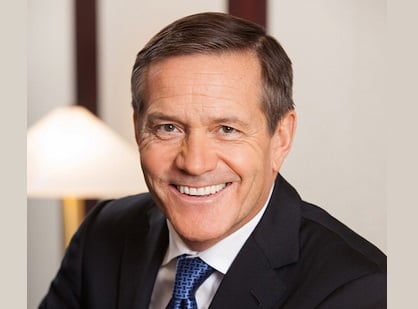The recently retired head of RBC Wealth-US discusses why it’s important for regulators to engage with advisors before forcing through rule changes

Having navigated RBC's US wealth business through the stormy seas of the financial crisis and its aftermath, John Taft speaks from a great deal of experience when he discusses the problems currently facing the industry.
Regulation, for instance, is an issue that divides the wealth management business in the US just as it does in Canada. In his position as chairman of the Securities Industry and Financial Markets Association, Taft has testified before Congress on the need for a fiduciary standard. He was successful in that respect: New rules governing financial planners in the US were set for rollout in April.
The presidential election changed all that, of course, and it now looks likely the new rules will never see the light of day. While he’s not exactly a fan of the new occupant of the Oval Office, Taft explains that scrapping that particular fiduciary standard isn’t a bad thing.
“The element causing the most heartburn is a provision that makes it very difficult to do business on a commission basis,” he says. “I think that will be changed. I also think Congress will give the Securities and Exchange Commission exclusive authority to write a fiduciary standard that applies to retirement and non-retirement accounts.”
Starting the conversation
Taft’s current position on the matter is something of a turnaround, given his work over many years to bring about a fiduciary standard. The reason for his volte-face is simple – the DOL neglected to consult with those in the industry before pushing ahead with its own plan. It’s a lesson those tasked with shaping the regulatory landscape in Canada should heed, Taft believes.
“For 10 years I have been advocating for a fiduciary standard that preserves client access to all the products and services they have today, but allows clients to work with the advisors they have today and pay however they want to – fees, commissions or a combination of the two,” he explains. “The DOL rule flunks on all three.”
In Taft’s view, the industry needs regulation – but the right kind of regulation that protects investors and allows advisors to do their job to the best of their ability. It’s an industry that has changed greatly since Taft first entered the business in 1981, so the rules governing it also have to adapt, as he explains.
“What has been happening in the wealth management business is that for decades, we have been moving step by step from a business that was really a sales business to a business that is a profession like law or accounting,” he says. “A fiduciary standard for people who provide financial advice is the final step on that path.”
He points out that it’s key for regulators to involve those within the industry when they are drafting rule changes. This was a massive oversight by the US Department of Labour when it came to creating its fiduciary standard, Taft says.
“It raises the bar in terms of client protection and helps restore trust and confidence,” he says. “But there’s a right way to do it and a wrong way, and the Department of Labour did it the wrong way. If they had consulted with the FCC and hadn’t been so aggressive, then you might have a rule that would survive – this one will not.”
Political pedigree
Prior to leading RBC Wealth-US, Taft built his reputation as chairman, president and CEO of Voyageur Asset Management; as president and CEO of Dougherty Summit Securities; and as a managing director at Piper Jaffray & Hopwood. The world of finance has been his home for more than three decades, but his family name is even more synonymous with the political realm. His great-grandfather was William H. Taft, America’s 27th president, while his father was Robert Taft, the storied Republican Party leader in the US Senate.
It’s not too surprising, then, that Taft has strong feelings on the current political climate in America. The discourse during the election campaign generally laid the blame for the country’s ills on the elite class. While Taft readily admits that he’s part of that demographic, he takes issue with the argument that America’s middle and working classes are suffering because of the actions of his peers.
“If you look at the election and the things that were said – one of the leading Democratic candidates for president said the business model of Wall Street is fraud,” he says. “Hillary Clinton got in trouble for giving speeches to Goldman Sachs. There is a lot of raw anger and mistrust.”
That anger has been lingering for quite some time, but it really started to build after 2008 when wide-scale job losses blighted Western nations for the first time in a generation. Distrust of both the financial services industry and politicians was ubiquitous during the Great Recession. Governments have come and gone over the past eight years, but the general public’s frustration has remained. It’s a phenomenon that the great-grandson of a president struggles to comprehend.
“It’s a weird combination of entitlement and anger – like spoiled teenagers,” Taft says. “I feel we have become a spoiled and entitled nation. What creature comfort isn’t available to most people? Standards of living have improved, yet here we are so angry. We have nothing to be angry about and everything to be grateful for.”
Taft, a living embodiment of the link between the financial and political spheres, knows this problem isn’t going away anytime soon. For that reason, he believes those who are considered part of the elite need to find a way to speak to the disenfranchised.
“Somehow people like me are the source of that anger,” he says. “They say I’m part of a self-perpetuating elite that only feathers their own nest. So people like me need to figure out what to do differently to unite the country again because it is really badly divided right now.”



